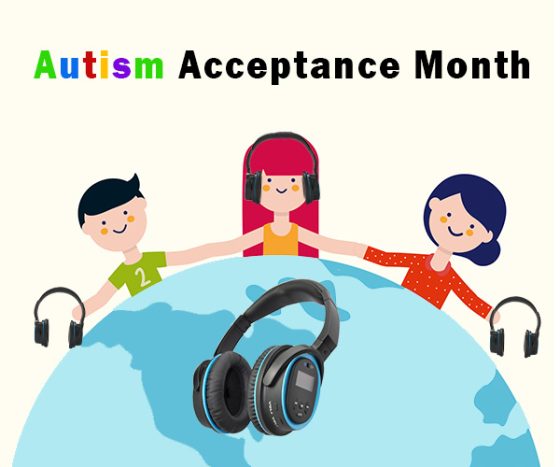
Many people do not know there are services for their babies or toddlers with Autism Spectrum Disorders prior to turning school-aged, and that is Early Intervention. Early Interventions are services and support for children and their families before the age of three. After three, the toddler would age out of Early Intervention and may be eligible for Special Education within a preschool or no longer require services as a whole.
Some babies can receive Early Intervention services right after they are born. Specific illnesses, low birth weight, premature birth, or a specific diagnosis may allow the child to qualify for Early Intervention with a referral prior to leaving the hospital. Other babies or toddlers may qualify for Early Intervention based on developmental delays, or if showing the early signs of Autism. It is important to always consult with one’s doctor if there is a concern in your own toddler’s development early on. The first five years of a child’s life is very important as they begin to develop basic skills, and Early Intervention can also assist with teaching and learning those skills to lead to success in the future. Early Intervention may include Speech Therapy, Occupational Therapy, Physical Therapy, Direct Instruction often known as D.I, or more depending on the needs and skills of one’s baby or toddler.
Early Intervention services may focus on five development domains below. If a child is struggling in one area, they may also have difficulty within another area. For example, if a child is displaying difficulty with their fine motor skills, they may also have difficulty with self-help, such as using a spoon to feed themselves or donning/doffing a shirt
● Social/Emotional
○ Play
○ Facial Expressions to caregivers
○ Self-soothe
● Cognitive
○ Interacting with their environment
○ Play and use toys, such as shaking a rattle
○ Problem-Solving
● Communication
○ Following simple directions
○ Babbling/Talking
○ Listening
● Self-Help/ Adaptive
○ Dressing
○ Eating with Utensils
● Physical
○ Fine Motor Skills, Gross Motor Skills, Perceptual Motor Skills. Examples may include:
■ Sitting on their own
■ Rolling over
■ Delayed with Crawling or Walking
■ Grasping and reaching for toys
■ Completing Puzzles
Autism Acceptance
Children are beginning to be diagnosed with Autism Spectrum Disorder as early as two years of age. Some children with Autism Spectrum Disorder may show typically developing skills, and then begin to regress in those areas. With the early diagnosis, it is especially important to start Early Intervention early on. With an early start to Early Intervention, their brains are still developing; therefore, the toddler can be taught important developmental skills for greater success in their activities of daily living for the future.
Early diagnosis with early assistance like Early Intervention can greatly improve communication and fine motor skills, reduce behaviors, as well as, support the family members to meet the needs of their child.
Benefits of Early Intervention for Children with Autism Spectrum Disorder or Developmental Disabilities:
● You do not want to play the “let’s wait and see the game.” Get services early on if concerned about developmental or early signs of Autism
● Improve the child’s overall development while the brain is still forming
● Reduce toddler’s frustration that could possibly lead to behaviors
○ Help the child develop positive coping and self-regulation skills
● Helping families
○ A benefit of Early Intervention is that service providers work very closely with the family. It is a teaching moment for both the child, as well as, showing the parents different strategies to incorporate into their daily routines to help their child further develop their milestones.
○ Strengthening the Parent-Child Relationship
● Making learning fun and promoting play
● Promoting future skills and preparing the child for school
● Help the child meet their developmental milestones and become independent in tasks
● Some children with Autism Spectrum Disorder benefit from ABA Therapy
Aging out of Early Intervention
After a child turns three years of age, they are no longer eligible for Early Intervention and may receive Special Education services within a Preschool setting. If there are specific skills or tools that work for managing behaviors or attention to tasks, it can be important for that to continue within the Individualized Education Plan or IEP. If a child received Speech Therapy services in Early Intervention, they may be re-evaluated to see if they are still eligible now that they have aged out of Early Intervention. All the growth that happens within Early Intervention should be continued as they enter school and are eligible for continued services.
Music Therapy Programs
Toddlers can learn a lot through music whether it be motor imitation of Wheels on the Bus, learning different animal noises, or simple words. Music can also be very calming to some children with Autism or developmental delays that may be experiencing varying levels of frustration or sensory processing difficulties. More research is coming out that shows music has been a powerful tool when working with children with Autism specifically. Soundsory is one example of a music therapy program that could be included in the child’s school day or once they are home from school.
● Benefits of Soundsory may include:
○ Utilizes a bottom-up approach to focus on sensory integration, development and learning.
■ Sensory: targeting the auditory system, but also aiding visual, tactile, vestibular, and proprioceptive systems.
■ Development: Helps with the development of fine motor, visual motor skills, and attention to task
■ Optimizing Learning
○ Can be utilized throughout the school day during a therapy session or while relaxing to increase skills and attention
○ Soundsory strives to help children feel empowered and boost self-confidence with their movement based activities and rhythmic music. The calming nature of the music and the movements can improve a child’s ability to participate in their daily activities.

